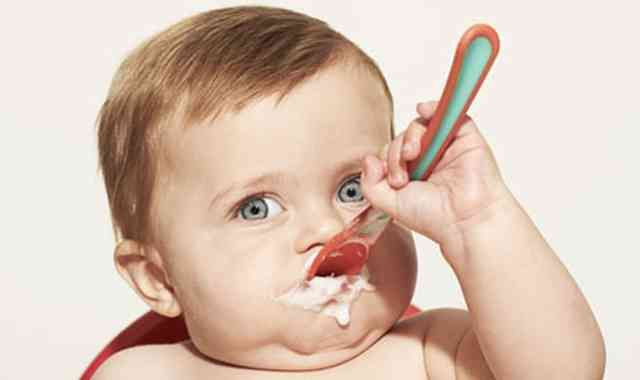Study finds oral bacteria transmission from parent to child increases dental health risks
A new study is calling on dental teams to alert parents to the oral health risk of sharing spoons with toddlers at mealtimes.

A new study is calling on dental teams to alert parents to the oral health risk of sharing spoons with toddlers at mealtimes.
The original study investigated how health behaviors related to the potential transmission of oral bacteria from mother to child.
Acknowledging that health behaviors play a major role in the prevention of the most common oral diseases, it suggested a need within patient health education for more emphasis on how to prevent bacterial transmission from caregiver to child during feeding.
More emerging research: Toothbrush type found to influence bacterial growth
The study polled mothers attending child health clinics in Finland using a questionnaire that addressed the issues of health knowledge and behaviours such as sharing a spoon with their child, kissing on the lips, and the mothers’ tooth brushing, smoking, age, and level of education.
Of the mothers, 11% believed that oral bacteria could not be transmitted from mother to child.
The most common health practices related to bacterial transmission from the mother’s mouth to the child’s mouth was kissing the child on the lips (38%), followed by sharing a spoon when feeding the child (14%).
The research reported that "behaviors related to the transmission of oral bacteria, together with diet and oral hygiene, are important in the etiology of dental caries in toddlers. Consequently, protecting babies and toddlers from the maternal transmission of oral bacteria is considered vital to their oral health.
"The World Health Organization, for example, has published various guidelines and recommendations on health practices for mothers and caregivers. In addition, reducing the mother’s own oral bacteria is believed to minimize its transmission to the child and thus to decrease the risk for caries."
Only parents (or caregivers) with active tooth decay can spread the Streptococcus mutans bacteria through the transfer of saliva.
Continue to page two for more...
The study coincides with the latest figures from the Health and Social Care Information Centre that show nearly 26,000 children, aged five to nine, were admitted to the hospital in England in 2013-14 with tooth decay. This has increased by 14% since 2011 – a ‘crisis point’ according to the Royal College of Surgeons’ dental faculty.
Fiona Sandom, president of the British Association of Dental Therapists, believes dental teams should focus on the facts that gum disease and caries bacteria transmission remain problematic and are both often overlooked.
"There have been many studies about the transmission of cavity-causing bacteria from mother to baby," she said. "The primary culprit is Streptococcus mutans, that can pass from person to person through the transfer of saliva so sharing utensils, blowing on food and even kissing toddlers on the mouth all pose a risk.
New study finds potential alternative to antibiotics for treating dental disease
"But," Sandom continued, "tooth decay is caused by many other factors and, as well as highlighting the dangers of transmitting infectious saliva, we also need to discuss good oral hygiene (for mother and child), a no-sugar diet and the importance of avoiding bad feeding practices, such as letting a baby constantly suck on the spout of a beaker full of juice, milk or other sugary drinks. Baby teeth are particularly vulnerable to decay and it is never too early to talk about prevention and good oral health practices.’
"Children’s dental health education must begin with mothers-to-be. By highlighting the possibility that their own dental health can be compromised during pregnancy due to hormone changes, it encourages effective and regular cleaning habits that will help prevent tooth decay and caries and, therefore, reduce the risk of any negative transmission to their offspring.
This article was adapted by DPR from an original British Association of Dental Therapists media release.